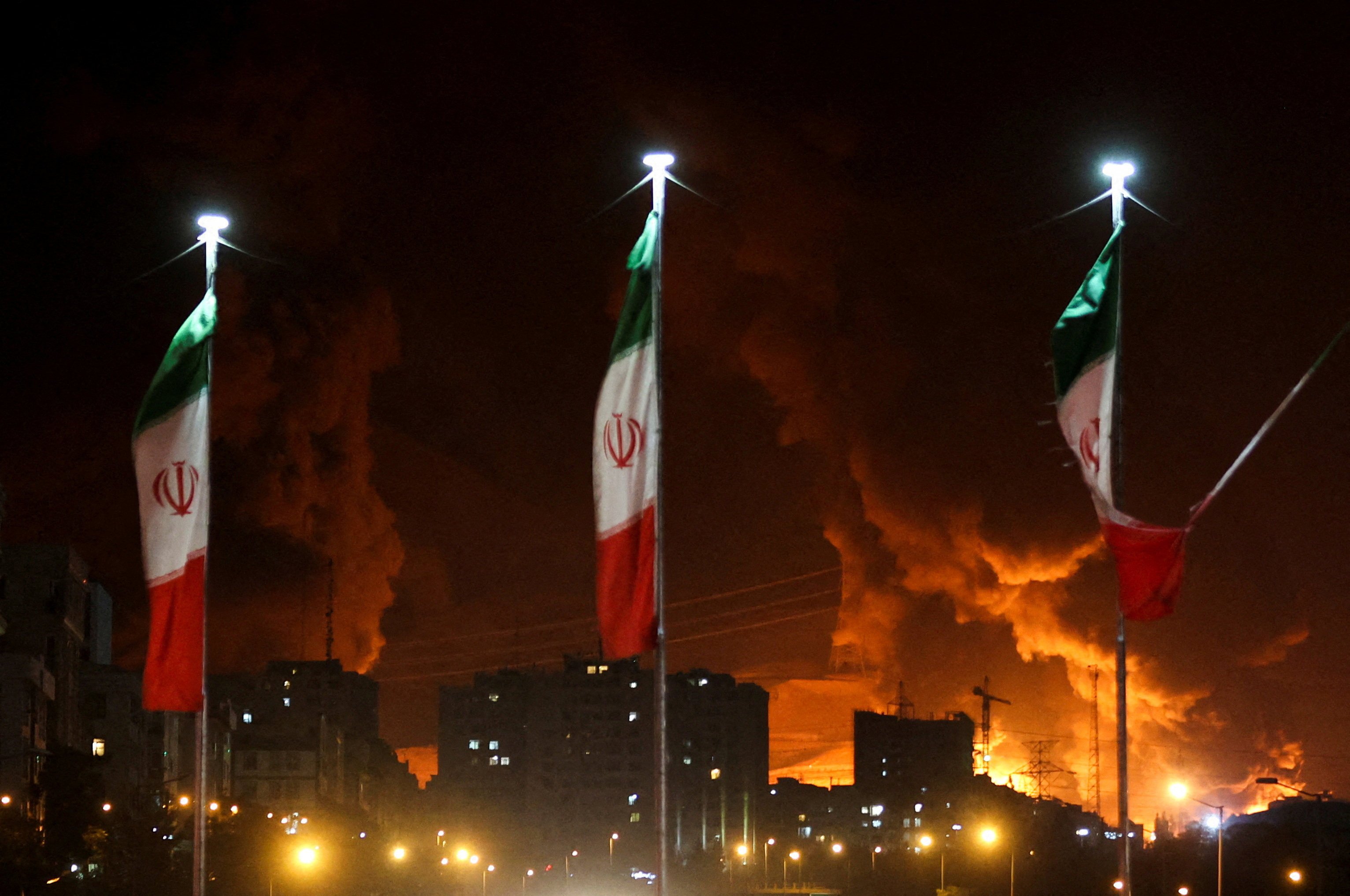Asia’s oil lifeline at risk as Israel-Iran crisis ignites Strait of Hormuz fears
Any closure of the strait could choke oil flows vital to Asian economies, analysts warn

Escalating conflict between Israel and Iran is raising fresh concerns over Asia’s energy security, analysts said on Tuesday, with any disruption to oil flows through the Strait of Hormuz threatening to destabilise global markets.
Roughly 70 per cent of Asia’s crude oil and refined product imports pass through the narrow waterway, which lies adjacent to Iran and connects the Persian Gulf to the Gulf of Oman. The strait remains one of the world’s most critical maritime choke points, particularly for heavily import-dependent Asian economies.
The renewed anxiety came after US President Donald Trump left the Group of Seven (G7) summit in Canada a day early on Monday after calling for the evacuation of Tehran in a social media post – a move widely interpreted as a signal that hostilities between Israel and Iran could intensify further.
Trump had earlier suggested that Iran was open to de-escalation talks with Israel, briefly cooling a sharp spike in oil prices. West Texas Intermediate crude dropped below US$70 on Monday, though it rebounded to US$73 on Tuesday, roughly 20 per cent higher than a month earlier.
“The potential closure of the Strait of Hormuz risks tipping oil markets into heavy undersupply, supporting prices and adding tension,” according to Janiv Shah, vice-president for oil markets at Rystad Energy. “A blockade remains the key risk that could push markets into uncharted territory.”
The G7 meeting, initially aimed at calming a series of global flashpoints, was overshadowed by the deepening crisis over Iran’s nuclear programme, which flared after Israel launched an aerial assault on Iran on Friday.
Crude oil shipments through the Strait of Hormuz currently total around 15 million barrels per day, or approximately one-third of global seaborne exports, Rystad Energy said in a note.
“In the scenario where there is a full closure of the Strait of Hormuz, Asia would be most impacted by the lack of crude exports,” it said. China and India account for most of the destination volumes, with limited global capacity to substitute similar oil grades, the note added.
While China and India are among the world’s largest oil importers, Southeast Asian nations are also heavily reliant on oil and gas imports, making the region particularly vulnerable to any prolonged disruption in Middle East supplies.
Analysts suggest Washington could play a moderating role in the crisis, given its interest in keeping oil prices contained to curb inflationary pressures. But whether Israeli Prime Minister Benjamin Netanyahu will pull back or escalate military operations remains uncertain.
Netanyahu on Monday did not rule out the possibility of targeting Iran’s supreme leader Ayatollah Ali Khamenei, stating such an assassination could “end the conflict” between the two long-standing adversaries.
“How the unfolding military and humanitarian crisis between Israel and Iran evolves hinges on the responses of the US, EU, Russia, and China, as well as developments on the ground,” according to Mukesh Sahdev, global head of oil markets at Rystad Energy.
“Oil markets are heading into a peak demand period in the US and will be looking for signs of stabilisation rather than further escalation,” he added.
For now, China – one of Iran’s largest oil customers – has seen no disruption to its imports, Sahdev noted.

Rystad Energy estimated that oil prices would likely remain capped below US$80 per barrel under earlier forecasts assuming sustained supply disruptions of 1 million barrels per day. However, prices could rise to as high as US$90 per barrel if disruptions reached 2 million barrels daily.
ICIS said its base case for Brent oil prices in July is US$71 per barrel, rising to US$93 per barrel under a high-impact scenario. However, it expects Brent prices to remain below US$70 per barrel through 2025, though this outlook could be revised slightly upwards depending on developments in the Israel-Iran conflict, according to Alex Siow, ICIS’ lead Asia gas analyst.
The market’s reaction, he added, would depend on “how the war escalates”.
Jamus Lim, an associate professor at the ESSEC Business School Asia-Pacific, said: “My impression is that this conflict, at least for now, remains limited in scale and scope, and while it may pose a short-term disruption that could also lead to temporary oil price spikes, it will not be as massive a shock as other oil shocks in recent history.”
ANZ, in a report published on Monday, warned that the nature of the attacks between Israel and Iran over the weekend suggests that risks to the oil market have increased in the latest phase of the Middle East conflict.
Israel’s initial strikes appeared to focus on Iran’s nuclear infrastructure, but subsequent attacks broadened to include a natural gas processing facility tied to Iran’s vast South Pars field.
“This move raises the prospect that Israel may target Iran’s oil infrastructure,” ANZ said.
Iran’s oil production and exports had recently climbed to a six-and-a-half-year high of 3.3 million barrels per day, with exports estimated between 1.5 million and 1.8 million barrels daily, according to the report.
Further Israeli attacks could worsen an electricity crisis already gripping Iran, which relies heavily on natural gas for power generation, ANZ warned. Damage to oil and gas facilities might force Tehran to divert supplies for domestic energy needs, cutting into its export capacity.
The key question for oil markets, ANZ added, is whether Iran’s retaliation extends beyond Israeli targets to shipping in the Strait of Hormuz – a step Tehran has historically refrained from taking.
While any spillover of the conflict into shipping lanes would have a “big impact” on global oil and gas supplies, physically closing the Strait of Hormuz is “impossible even if Iran wanted to,” according to ICIS’ Siow.
Other analysts warned, however, that a serious disruption to oil and gas markets remains possible.
“If the world does not restrain Israel from attacking Iran, then [Tehran] might start impacting traffic on the Strait of Hormuz. That could have a serious impact on oil markets,” said Gnanasekar Thiagarajan, founder of Commtrendz Research.